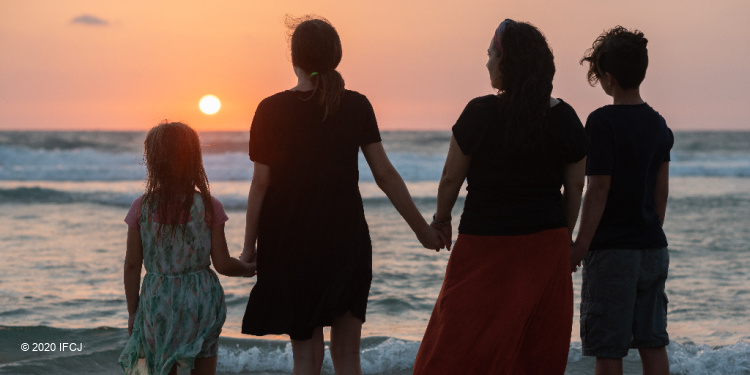Tikkun Olam – Repairing the World
Yael Eckstein | September 10, 2020

In just over a week, we will celebrate Rosh Hashanah, the Jewish New Year that marks what Jews believe is the anniversary of the creation of the world. In my home, we are getting excited and beginning to prepare the traditional holiday foods like honey cake and other treats that symbolize our prayers for a happy and sweet new year.
A Time of Celebration… and Contemplation
Rosh Hashanah is a time of celebration as we look forward to new possibilities and blessings. However, it is also a time of contemplation as we take stock of our lives. It is a time to reflect upon where we are, physically and spiritually, as individuals and as a society.
It’s never easy to take an honest look at where we need improvement. It can be unnerving to confront our personal flaws and overwhelming to acknowledge the problems plaguing our society. And this year, with all of the hardships and uncertainty the world is experiencing, it seems particularly difficult.
When we think about all of the world’s problems, it is easy to feel discouraged. We could throw up our hands in despair and complain about all of the things that are wrong and broken. However, we are called to rise up to these challenges with a spirit of faith and a sense of responsibility.
I would like to share with you a Jewish concept called tikkun olam, which means, “repairing the world.” It is the idea that the brokenness in our world is not a cause for despair, but our reason for living.
Repairing Our Broken World
God could have created a perfect world, with perfect people and no problems. However, He chose to create a world that needs plenty of work so that we might become partners in building His Kingdom on earth. When God created the first human, He “put him in the Garden of Eden to work it and take care of it” (Genesis 2:15). The very purpose of our lives is to do our part in repairing the world – beginning with ourselves.
During the High Holy Days, we focus on three tools that God gave us in order to accomplish this: teshuvah (repentance), teffilah (prayer), and tzedakah (charity and other acts of kindness).
Repentance is the primary tool for repairing anything that might be broken inside ourselves. The process of repentance requires us to assess what needs fixing and to make amends. It takes time and effort, but ultimately, we can become the best versions of ourselves, the person that God created us to be.
Closer to God
Prayer is a powerful tool that helps us fix our relationship with God. In an ideal state, we would feel so close to God that we would never go against His will. We would never fear any person or circumstance. Yet, in reality, there are times when we stumble in our faith. Through prayer, we restore our relationship with God and strengthen our bond with Him.
Giving charity and extending kindness to others are our greatest tools for doing our part in repairing the world at large. Instead of getting bogged down by the many needs and challenges that exist all around us, we should feel encouraged by the opportunity to become partners with God by serving His purposes. Every act of kindness, no matter how small, helps to heal our world in ways that we will never know.
A wise teaching in the Talmud, Judaism’s oral tradition, states, “You do not have to complete the work, but you are not free to desist from it.” Only God can bring about complete healing and restoration. But each of us must do what we can. And if we each do our small part, it will add up to a big change, and without a doubt, ensure that the coming year will be happier, sweeter, and more blessed than ever before.
With blessings from the Holy Land,

